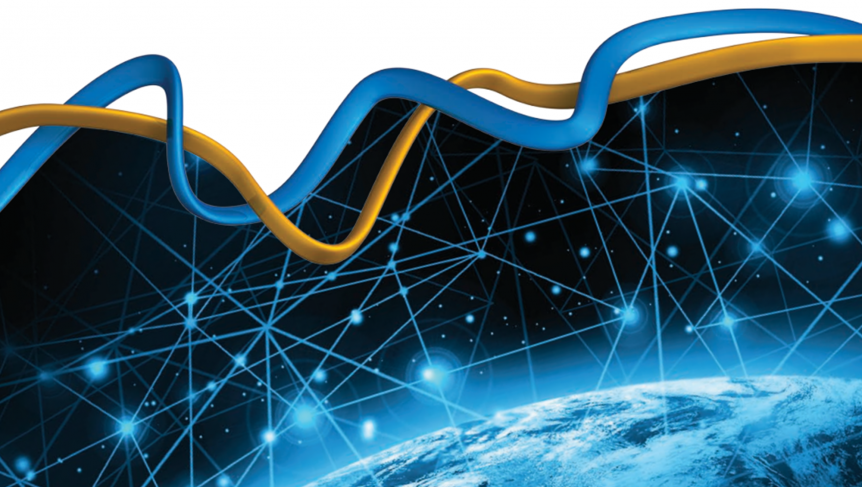Archive, Publication
Report calls for stronger leadership in IoT strategy
By Robert Thompson Impact & Research Fellow
The report entitled “Internet of Things: realising the potential of a trusted smart world” has been written collaboratively between academics of the PETRAS Hub and Fellows of the Royal Academy of Engineering led by Paul Taylor FREng, UK Lead Partner – Cyber Security KPMG.
The report identifies barriers to the adoption of IoT, providing recommendations to overcome these in order to realise the full potential of this technology.
Several key messages are found in the report including:
- The need for strong leadership from the UK government with a strategic forward-looking approach, and with policymaking that is dynamic and responsive to the developments in technology. This strategy should have an identifiable home within the UK government.
- The need to establish International ‘umbrella agreements’ on IoT with the aim of developing an international baseline for IoT data integrity and security for all parties to adopt. The UK should utilise its expertise in this area, taking the opportunity to lead in such activities.
- The development of ethical frameworks that support behaviours in the IoT that will help minimise risks to society.
- A need to address the transparency of the cyber safety and security of products, suggesting that the responsibility to achieve this should lie with the manufacturers and service providers, but greater data literacy of the population was also needed
- The importance of technical real-world demonstrators of developing technologies to aid our understanding of the implications of such technologies.
Introducing the report to members of the media Paul Taylor alluded to the huge benefits IoT will bring, and its ubiquitous nature, saying: “There is no going back on the Internet of Things, it is here to stay and offers many new capabilities. We should embrace it with a strategy that goes beyond IoT towards the ‘Internet of Everything’, with a greater focus on people, data and processes.”
The report was formally launched at an evening discussion at the Royal Academy of Engineering’s headquarters, just off the Mall in London. The event was attended by prominent members of both industry and academia.
The evening saw the joint launch of a second report from the academy, entitled “Cyber safety and resilience: strengthening the digital systems that support the modern economy” focusing on ensuring our modern economy is backed up by digital systems that are both safe and resilient.
Much of the collaborative IoT report is based on research and outputs from the PETRAS Hub, with valuable insight and industrial examples added by the Fellows of the Royal Academy.
In particular, PETRAS contributions focused on state of the art and gap analyses undertaken by the research teams of the Hub’s five research steams: Adoption and Acceptability, Harnessing Economic Value, Privacy and Trust, Safety and Security, Standards Governance and Policy.
Prof Jeremy Watson CBE, Director of the PETRAS Hub and Chair of the Royal Academy of Engineering’s Policy Committee, welcomed people to the evening discussion by saying how proud he was of the quality of reports produced by the Academy and Hub, and stating that the reports included key messages that should be acted upon to realise the Government’s Digital and Industrial Strategies.
The evening continued with a discussion between authors of the two reports, Prof Nick Jennings CB FREng, Vice Provost of Imperial College, Dr Madeline Carr, Associate Professor of International Relations and Cyber Security at UCL, Paul Taylor, and Dr Liane Smith FREng, VP Digital Solutions at Wood.
Each gave a brief presentation, with Nick Jennings and Paul Taylor providing a brief overview of the reports. Both highlighted that while these reports may focus on current drawbacks the economic potential and ability for these technologies to do good is tremendous.
Dr Carr went on to discuss the policy and governance challenges associated with the IoT and stated that managing and governing the rapid growth of such technologies was fundamental to their success.
She further stressed the importance of the UK taking a leading position in developing global governance saying: “No other state has invested as much in research aimed at thinking through policy implication of [Internet of Things] technology.
“However, this technology has no borders and the policy that other states implement will have impact here in the UK. It is therefore vital that we share our policy findings to inform and ensure best practice globally.”
Further discussing the global governance Dr Carr commented that the combining of the physical world and digital world that defines the IoT, brings the importance of cyber-policy to the forefront, saying : “The debates as to whether cyber can cause physical damage or violence have been put to bed, they irrefutably can and this has major implications for humanitarian law and the law of war.”
The evening concluded with questions from the floor. Many of the questions focused on the complexity of the challenge, with responses from the panel highlighting that while the technology does indeed bring complexity in ensuring security and policy-making, it also provides the tools to address this complexity, including live data collection, and analysis, Machine Learning and Artificial Intelligence.
One example given of this was the need for more agile policy-making processes to address the fast-paced changes in technology and their application. With the provision of continuous data monitoring, through the IoT, and analysis through new big-data techniques, the feedback loop on the effectiveness of policy-making can be drastically reduced making agile policy more achievable than ever before.
Both reports can be accessed at the Royal Academy of Engineering website:
PETRAS & RAEng report – Internet of Things: realising the potential of a trusted smart world
RAEng report – Cyber safety and resilience: strengthening the digital systems that support the modern econom

